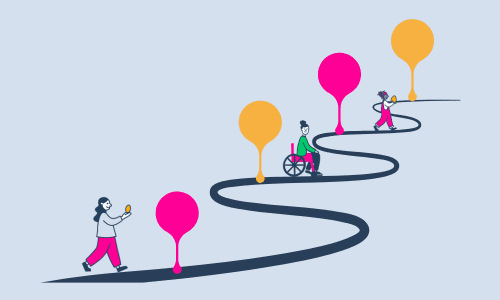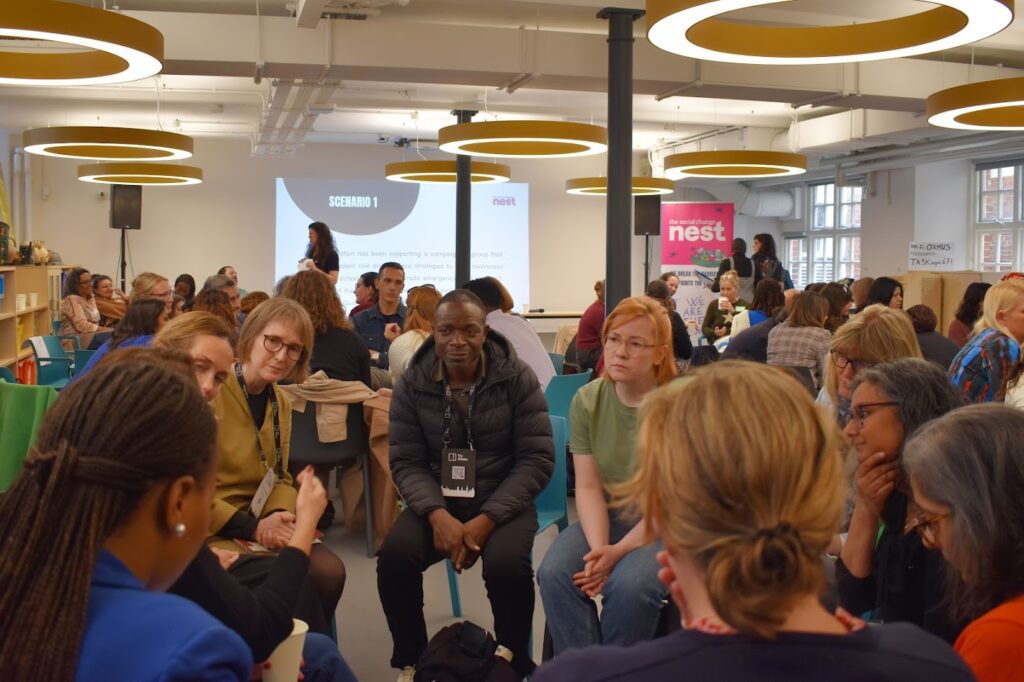What I’ve Learnt From 3 Years of Running The Social Change Nest
Written by CEO Esther Foreman.
It’s hard to believe we only started The Social Change Nest 3 years ago. Already, we can see how much our work is helping to carve out space in civil society at a time when it’s shrinking rapidly.
Over the past few decades technology has enabled people to organise in a different way, and the pandemic introduced thousands of people to social change. It’s therefore not surprising that while traditional charities are struggling to cope with the post pandemic pressures, global shifts and legislative changes, citizens are taking up the mantle outside traditional charity structures and using those techniques. It IS civil society, but just not as we know it.
My passion for change started young. Having been diagnosed with Multiple Sclerosis at the early age of 14, I have been in and out of of wheelchairs, I’ve lost my sight in one eye, I’ve used walking aides and I’ve fought for the correct treatment at the hands of the NHS, at times, the DWP and with larger systemic prejudices. My personal experience led me to begin my career in the charity sector, but it was this experience that made me aware of the entrenched power dynamics that mean that access to the tools and systems that help create change are in the hands of the few. What does that mean for collective power and the true democratisation of social change?
The years spent running The Social Change Agency, a social impact consultancy that provides influencing, governance and communications support, gave me a unique perspective on the social movements that were bubbling away in the UK and beyond. My team and I were experimenting with how we could support social movements generally.
Over a decade of experience as an advisor and consultant in progressive spaces has taught me that governance and administration are the two unofficial queens of social change. Without a good foothold of each, most social movements wobble, crumble, eat themselves or just take ages to get anything done.
The structures and systems of governance, money and power often make it impossible to set up, get going and keep going as a committed group of people who want to change the world. We had an inkling that fiscal hosting, where the administration, governance and financial management was outsourced, was the answer to this but we needed to find a way that would enable fiscal hosting on terms suitable for the social movement and not just the fiscal host.
Governance and administration are the two unofficial queens of social change
Enter Open Collective; this incredible piece of technology was the answer we were looking for. It enables transparent bookkeeping in a way that supports decision making, trust, and collaboration and means we can do it at scale.
Fast forward 3 years, we have now expanded our services to include grant management and distribution, our infrastructured programme which supports groups to build their strategic and administration capacity and developing Community Advised Funds and our payroll and payment services.
The groups using our services range from tenants and residents associations to solidarity funds, activists, global movements, local youth projects, early stage social enterprises, climate groups, trade union strike funds, community kitchens and so much more.
These are the new generation of civic leaders, working as a group, often committed to transparent decision making, experimenting with asynchronistic organising, inspiring others and bringing people into equitable leadership. Our groups will have many things in common, but the main one for us is their passion and dedication to make a difference together.
I am so proud of the journey we have taken to get us here and eternally grateful for my team and our partners who have shared our vision for social change. I am also very excited for what’s to come.
The Charities Aid Foundation lists Charitable giving in the UK at around £10bn a year. Even if we shave a fraction off that and place it into the hands of those that need it, great things will happen. If we support the activists and campaigners to have access to regular income and the benefits that come with it, greater things will happen.
Finally, if we weave together our ecosystem, bringing together disparate groups often kept apart through a scarcity agenda, and help resource and support it properly, the best things will happen.
The future isn’t just about facing challenges; it’s about leveraging opportunities to turn every challenge into a stepping stone for unprecedented social impact.
Are you with us?
- Blogs
Stay up to date with us
Sign up to The Social Change Nest newsletter

